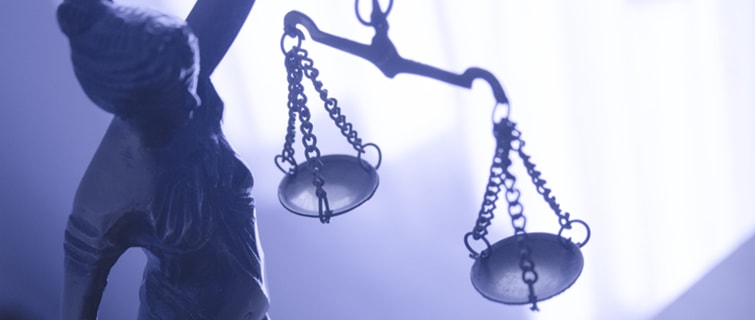
At the very beginning of Lin-Manuel Miranda’s award-winning show “Hamilton,” a young Alexander Hamilton, eager to play a role in the impending revolution, meets Aaron Burr for the first time. Burr offers the young Hamilton some advice: “Talk less, smile more; don’t let them know what you’re against or what you’re for.” Hamilton’s response, spoken with more than a little incredulity is, “You can’t be serious.” Later, as Hamilton and his cohorts prepare to fight for freedom for the colonies from England and George III, Hamilton responds more directly with a question to Burr:
“If you stand for nothing, Burr, what will you fall for?”
Becoming Moral Leaders and Why This Matters
What will you stand for? What will you fall for? What shapes these kinds of decisions for each of us individually as well as collectively? These are not abstract questions, but something we confront every day in our world as continuous news stories—real and fake—confound our values of what is right and wrong and as leaders challenge long-established ethics standards and practices. The focus on ethics at Georgetown and in the all the graduate programs at SCS deliberately creates a forum—and, more importantly, an inner dialogue as well as a conversation—around these kinds of questions.
In SCS’s newest program, Master's in Design Management & Communications, ethics is also a key part. The ethical design course, Ethics and Design, that I will be launching in Spring 2019 as part of this program will explore ethical foundations and issues in design as well as show how ethics—the choices we make every day in everything we do, including design—permeates the choices we make, whether we are aware of it or not.
Knowing What Is Right
Where can we look to help us decide what is right or wrong and develop our own personal ethics code? I believe one place to look is in history and the arts, which can offer insight into how people throughout history have responded to these moral imperatives. For the passionate young Hamilton, not having beliefs about what is right and what is wrong and the willingness to stand up for those beliefs is a serious failure of moral character. Such a man cannot be trusted, and this is an early red flag for Hamilton about Burr, even though they maintain a friendly, even convivial relationship throughout most of “Hamilton.”
The culmination of this moral difference between Hamilton and Burr occurs, not when Burr kills Hamilton in a duel, but three-and-a-half years earlier in the election of 1800 when Hamilton endorses his longtime adversary Thomas Jefferson for president over Burr, thereby turning the election in Jefferson’s favor. Explaining this decision, Hamilton says, “Jefferson has beliefs, Burr has none.”
In his own real writings at the time, Hamilton expressed it this way in a letter to Harrison Gray Otis, a Massachusetts Congressman: “Mr. Burr loves nothing but himself—thinks of nothing but his own aggrandizement—and will be content with nothing short of permanent power in his own hands.” Leadership for Hamilton requires morality: Both the moral sensibility to know what is right and to serve a greater cause than oneself; and, the ability and willingness to stand up for what is right in word and deed. Without these qualities, Hamilton knows that leadership cannot be trusted and is full of risk. Thus, he concludes in his letter to Otis, “Jefferson is in every way less dangerous than Burr.”
In the end, of course, Burr, who has been shown to lack moral principles, kills Hamilton (who perhaps in this instance had them in too much abundance) in a duel. Certainly, one message of “Hamilton” is clear: sticking to your beliefs is not easy and can require sacrifice. But, another message is also clear, at least from Hamilton’s point of view—that the dangers of being without a moral compass and moral convictions, and without moral leadership, are far more perilous.
Of course, in “Hamilton,” one of the great ironies of Hamilton’s public morality and heroism is that, while he chooses the side of moral principle in his public life, he does just the opposite in his private life: he not only cheats on his wife, but then decides (listen to the song “Hurricane” to hear his ruminations on the subject) to write an open letter about it to save himself and his reputation, without a thought for his wife and family. How can such noble actions and willing sacrifices in public life comport with such private moral blindness?
Being Awake, Staying Engaged
Unfortunately, we don’t all get fabulous musicals to present and dramatize our moral beliefs, conflicts, and shortcomings, which no doubt might make it a bit easier to tackle these kinds of issues. But, in the absence of a musical, there is tremendous value in looking at the many moral stories, like Hamilton’s, that fill the world and that help us frame and shape our own moral stories and struggles, and the roles we want to play in the world.
Martin Luther King Jr., one of the world’s greatest moral leaders on the world stage, gave a speech on March 31, 1968, at the National Cathedral in Washington D.C., four days before he was killed. It was called, “Being Awake During a Great Revolution.” He began by saying, in the way he had of being both folksy and lofty at the same time, how happy he was to be there and “to take a brief break from our day-to-day demands and the struggle for freedom and human dignity and discuss the issues involved in that struggle.”
He goes on to tell the well-known story of Rip Van Winkle—what he called “that arresting little story”—but with a twist. He observes that, when Rip Van Winkle went up to the mountain and fell asleep, the sign he passed had a picture of King George the Third; but, when he came back down twenty years later, the sign had a picture of George Washington. With this retelling, King brings home his main point: Rip Van Winkle did not merely sleep for twenty years, but he slept through a revolution. King goes on:
“One of the great liabilities of life is that all too many people find themselves living amid a great period of social change, and yet they fail to develop the new attitudes, the new mental responses, that the new situation demands. They end up sleeping through a revolution.”
Both Hamilton and King believed, in the lexicon of today, that people need to be “woke” if they are to participate as responsible citizens and responsible human beings in the world. Today, we are also living through a great period of social change where morality and beliefs matter greatly; and being, as King put it, “awake” matters greatly. Engaging with ethics and examining moral struggles and examples of moral leadership are ways to help us stay awake; and, moreover, through discussion and debate with fellow students, to push ourselves towards achieving more consciousness and more compassion as human beings in a very complex and ambiguous world.

